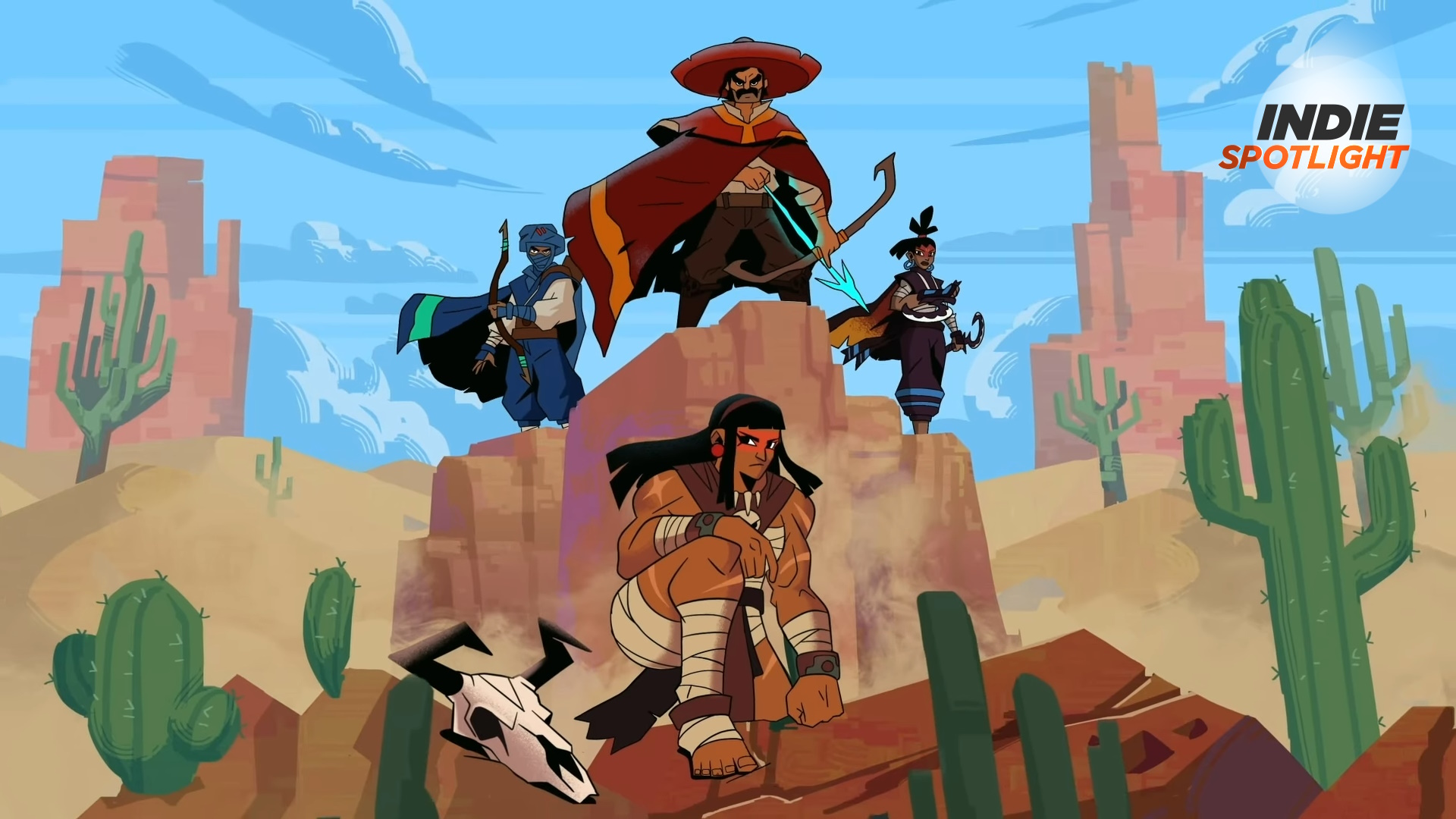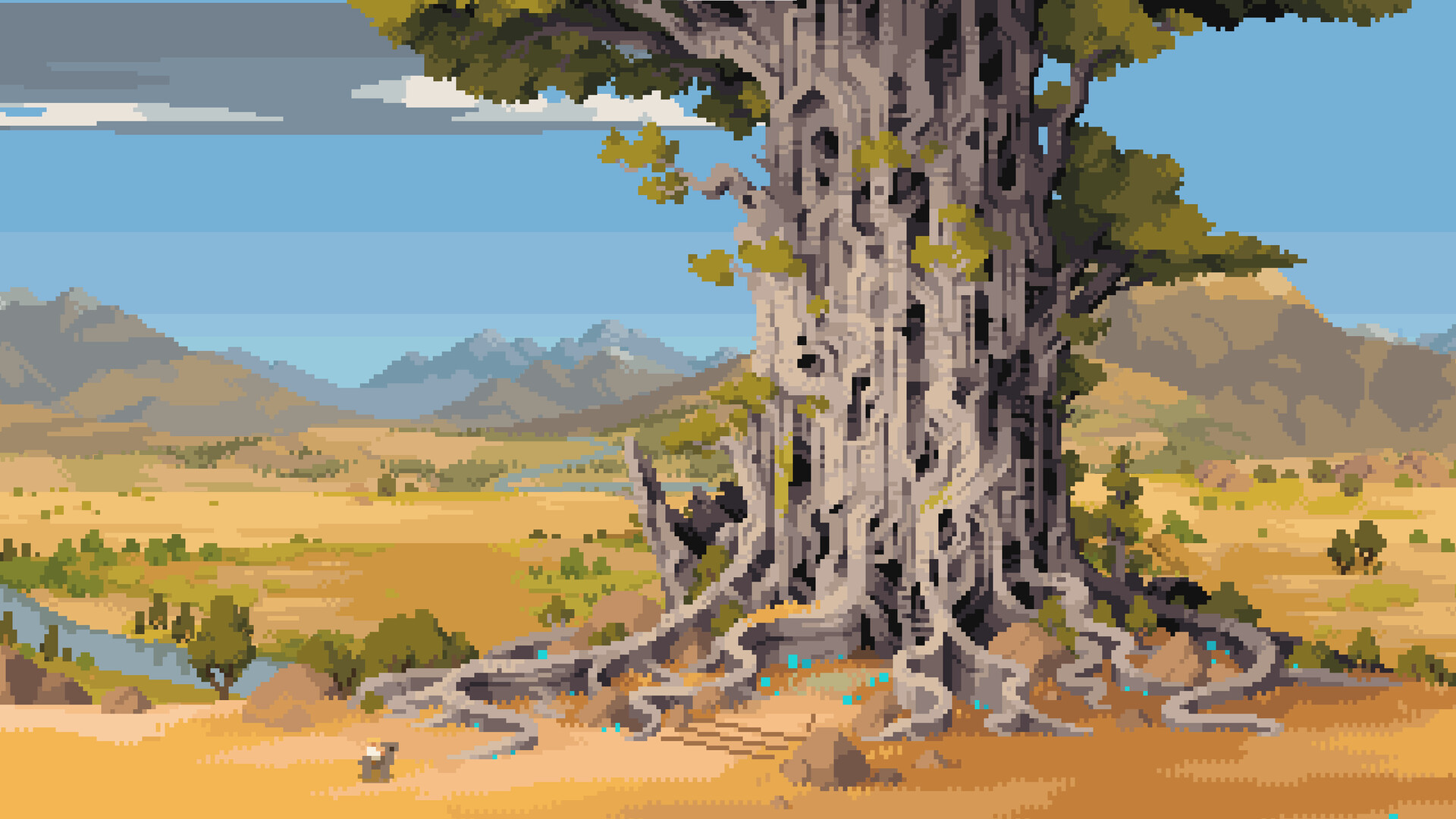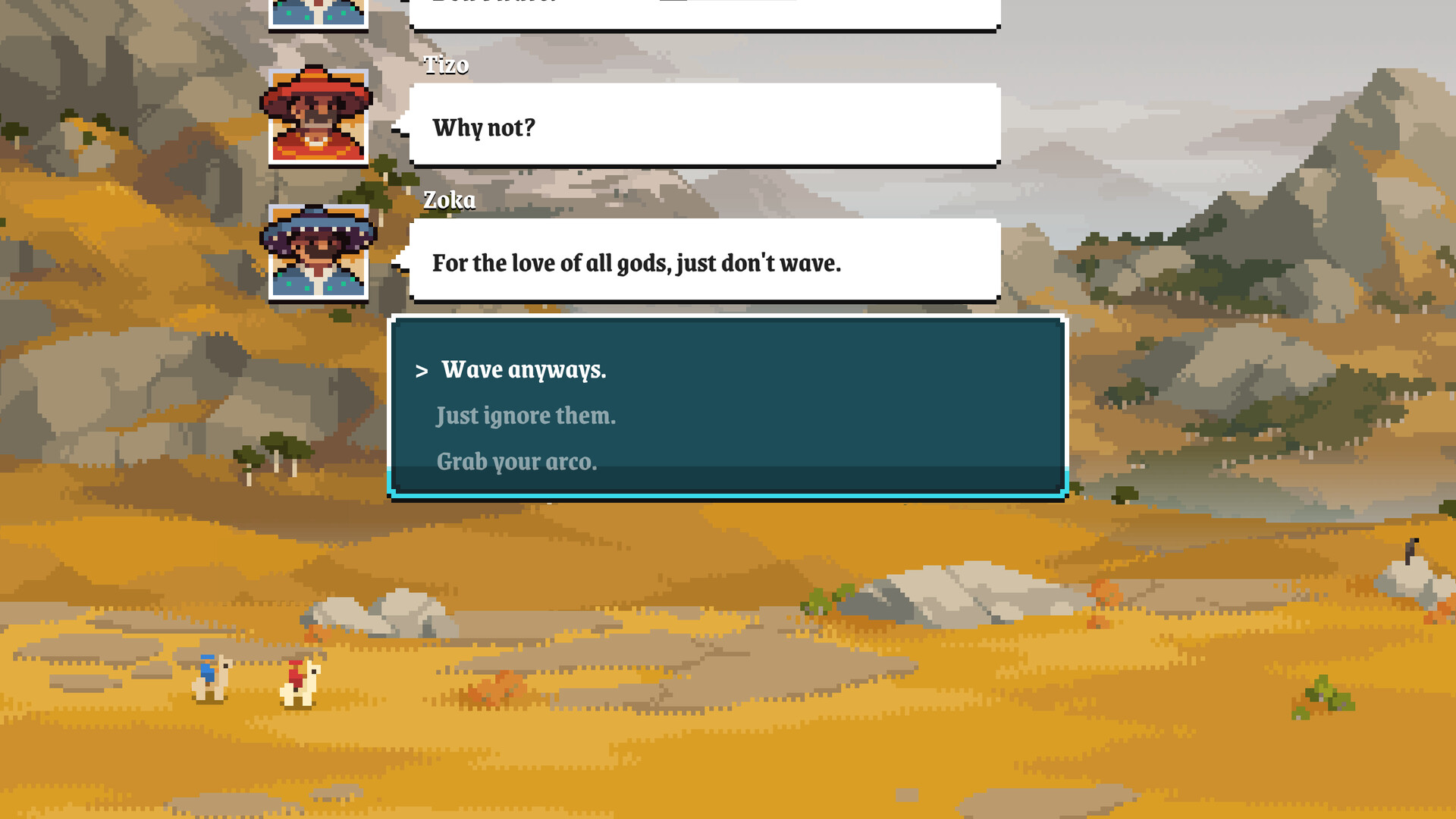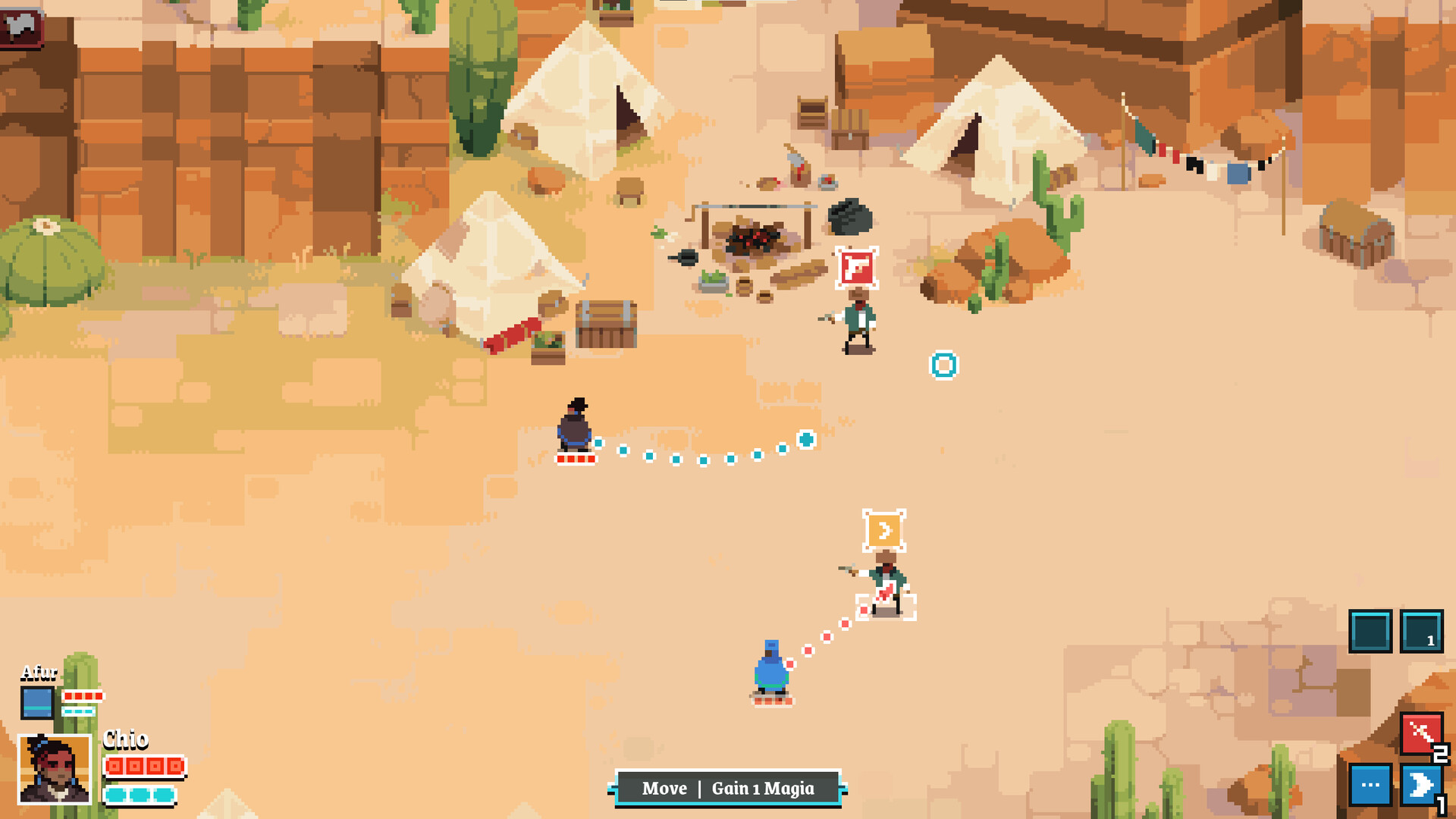Turn-based fantasy RPG Arco packs big, branching decisions into a small and stunning not-Western world – now I see what all the fuss was about
Indie Spotlight | Arco is a real-time turn-based tactics game with lush pixel art and and a lusher setting

Once a lovely demo in Steam Next Fest and then the catalyst of discussion on good games selling poorly, "simultaneous turn-based" fantasy RPG Arco has now become one of my favorite finds of the summer. I say that, but I'm late to the party; the game's been out for nearly a month and has already seen its fortunes reversed largely through word of mouth, with glowing critical reviews and now "Overwhelmingly Positive" Steam user reviews (it's also on Switch) rocketing the game to the top of OpenCritic's 2024 hall of fame, and also to a point that the developers feel much more confident in its financial success. After a few brisk hours, which represents a solid chunk of this 10 - 15-hour game, I can add my own thumbs-up to Arco's growing collection. This is a lush, clever RPG that punches well above its weight.
A Western, but not really

I'd hoped to play more of Arco this week but then vertigo and a migraine teamed up to double lariat my temples. A few chapters in, with much of the game's overlapping revenge stories still to be revealed, I'm not short on things to love. Arco is obviously good in many ways. Sharp pixel art brings color and character to a fantasy-lite Mesoamerican world and its inhabitants, who are largely split between natives and colonizers. Arco is grounded and familiar, but six-legged bison, exploding cacti, magic trees, and the occasional teleport have kept me on my toes. A fine balance of predictable effects and unpredictable causes gives every section of the world, separated almost Super Mario-style as stages on a path-strewn map, a sense of mystery.
Interacting with that world is a treat. There's a toy-like quality to Arco that puts it somewhere between old-school adventure games and modern RPGs. The first thing I did was pet a donkey, and then pet it again, and again, and again, spamming my way through prompts waiting for something to happen – until something did. Arco seemed to offer a knowing laugh as the donkey fussed at me, and from that moment I just wanted to poke and prod this game to see what happens. Environments hide useful items, observations split between cute dialogue and important context, and plenty of hidden encounters. Curiosity is encouraged and rewarded and sometimes punished.
The lofi wrapper on Arco feels like a disguise. If I could peel it back, there's not a doubt in my mind that I'd find a labyrinthine web of interlocking decisions underneath. Tiny interactions and discoveries carry enough weight and consequence to make you wonder what might've happened if you'd chosen Option B earlier. Let me give you two of my favorite interactions so far, obviously not including the donkey.
You get gold by completing quests, looting areas, and selling items to merchants. At one point I spent almost all of my gold hiring a guide named Zoka, convinced that any companion this expensive must be worth it. This guide has his own customizable skill tree, a pruned version of the more complex ranged and melee and movement abilities of the main characters, and ended up being indispensable in pretty much the entire chapter, both for navigating combat and avoiding it.

I found the wreckage of a caravan attacked by large lizards, the crew already half-eaten. My guide advised me that there wasn't much to be found here, but I investigated anyway, predictably pissing off the nearby lizards. One scaly fight later, which cost both of us a bit of precious health, Zoka heaved an I-told-you-so sigh as my search turned up nothing. Damn, I should've listened to him. But wait: on the return trip, the family of the dead caravaneers thanked me for avenging them and killing the lizards, and gave me a nice bowl of paella which healed me up. So in the end, I basically got some free and valuable XP out of the deal. Take that, Zoka.
Elsewhere in our travels, I encountered some local mountainfolk. "For the love of all gods, just don't wave," Zoka advised me. Arco is a hostile place, so this time I heeded his advice with no questions asked. If I hadn't hired him, I can guarantee that I would've waved at these folks, presumably committing a massive faux pas and igniting a fierce battle that I frankly don't have the healing items to pay for. I wouldn't say Arco is a brutal game, with quick saves and do-overs aplenty, but it is capable of killing you very quickly, and with that said I can finally talk about the combat.
Weekly digests, tales from the communities you love, and more
Turn-based, but not really

"Simultaneous turn-based" sounds oxymoronic but really is a perfect description of Arco's combat system. There's a bit of Real Time With Pause to it, but with more clearly defined turns. Each turn, you use an ability to attack or move, popping cooldowns and/or spending mana (Magia) points, and then everything plays out in real time. Any incoming attacks or projectiles, their paths visible through a preview of enemy actions, will miss if you move out of the way, so movement, including carefully curving your path around bullets, is crucial. As with many RTWP games, kiting enemies is also important. You can use items as needed, move normally to regenerate one Magia, or wait in place to regain three Magia.
This creates a back-and-forth tempo where reacting only gets you so far; you need to plan ahead, predicting enemy behavior and formulating attacks around it. Budget your strongest moves, find time to regain mana, focus down dangerous targets – it's classic RPG tactics but feels like a bullet hell game animated on threes. It's like a kinetic version of bouncing enemies around stages in Disgaea, or a tactical spin on the "time moves when you move" hook of Superhot. The way you sync up movements and attacks even reminds me of Resonance of Fate at times, and that's a deep cut. Earning XP and unlocking increasingly powerful and costly abilities ramps up the complexity, and while kiting two or three enemies is easy, Arco loves to throw mobs at you out of nowhere to switch up the rhythm.
The kicker is a stroke of genius: the mistakes and regrets of the narrative you've charted are woven into combat through a Guilt mechanic that summons ghosts which can move and attack during the paused section of your turn, forcing you to think and act quickly. This ghastly timer adds a wonderful bit of narrative through gameplay, as well as a counterweight to the immediate gains of taking the evil route, which – like in real life – is very often the easy and exploitative route. Arco maintains this and other delicate balancing acts without even blinking. It's a smart, tightly designed RPG with nothing but respect for your time. It's a wonder and a shame that it ever struggled to find an audience.
Here are 25 of the best RPGs you can play right now.

Austin has been a game journalist for 12 years, having freelanced for the likes of PC Gamer, Eurogamer, IGN, Sports Illustrated, and more while finishing his journalism degree. He's been with GamesRadar+ since 2019. They've yet to realize his position is a cover for his career-spanning Destiny column, and he's kept the ruse going with a lot of news and the occasional feature, all while playing as many roguelikes as possible.



